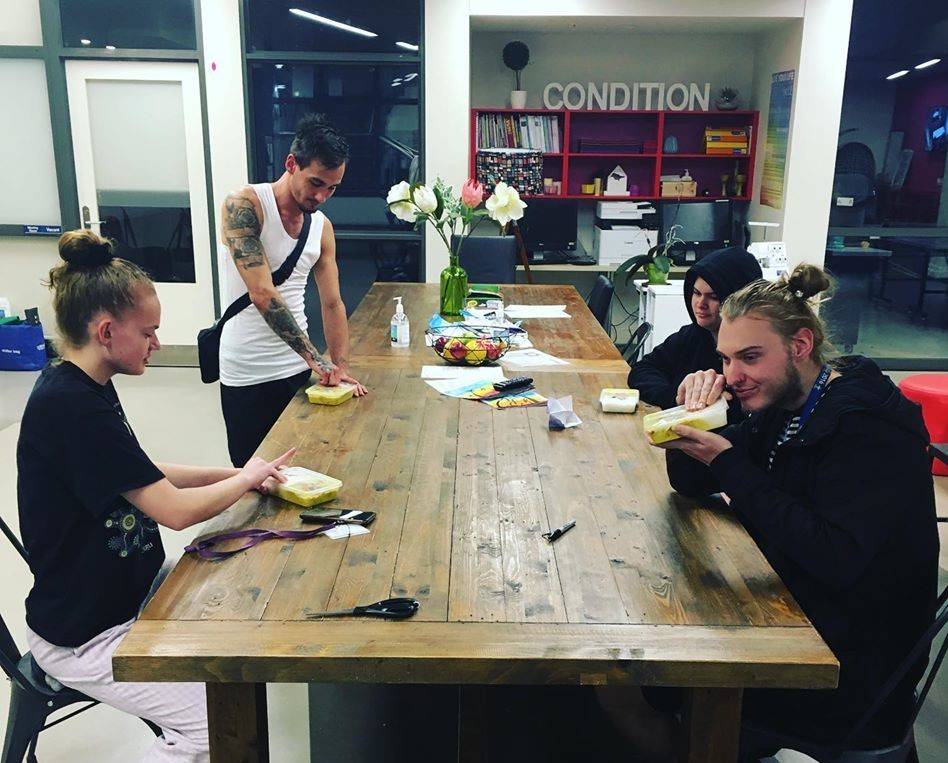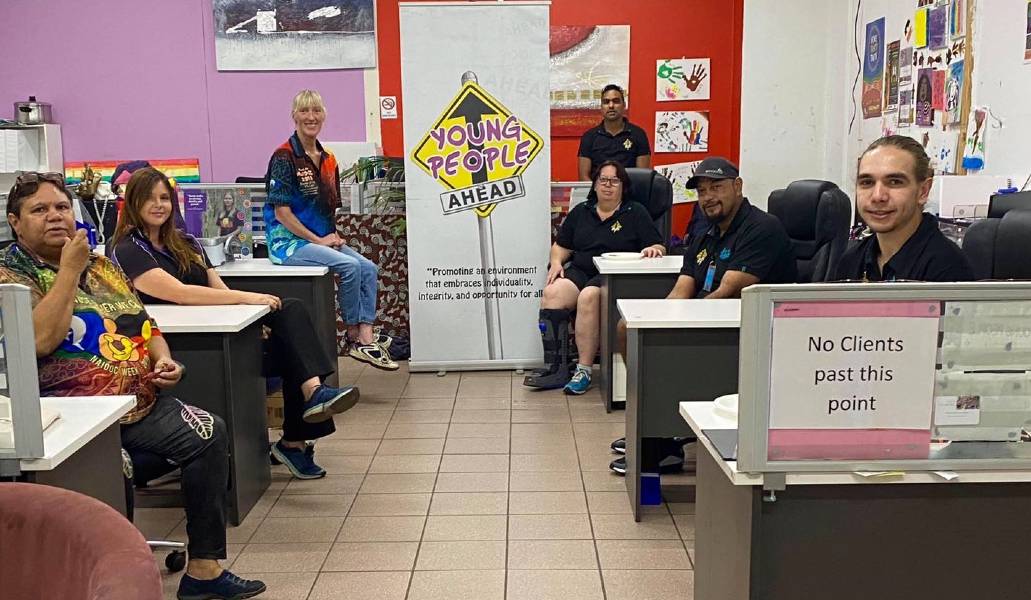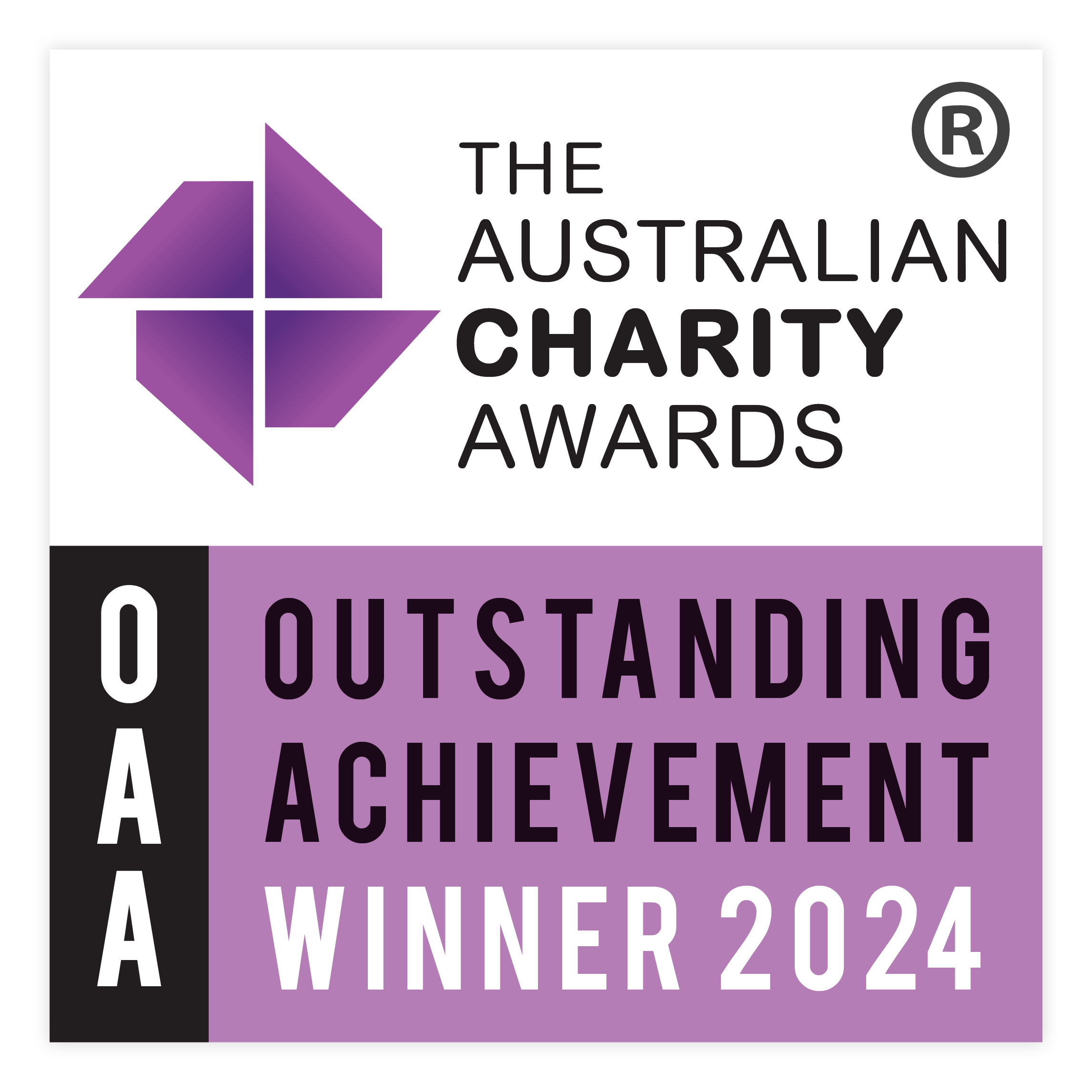
Photo Credit: Foyer Shepparton
Young people in their teens and twenties maybe less likely to contract or be at risk from COVID-19, but many will be affected by the societal and financial fall out for years to come. This pandemic has and will have a dramatic impact on young people’s lives, that why this week we made four grants to youth based organisations from our COVID-19 Emergency Response Fund.
Prior to COVID-19 Australia already had significant crises of youth homelessness, youth unemployment and youth mental health. Youth unemployment was more than double the overall unemployment rate and people aged 12 – 24 years old made up 24% of all homeless people in Australia.
Young people in the workforce often experience precarious and insecure working conditions, where the hours offered don’t cover basic living expenses. Many of our young people find themselves at, or below, the poverty line.
A recent survey conducted by Youth Affairs Council Victoria (YACVic) of 50 different organisations and services supporting young people in Victoria aged 12 – 25 revealed that 89% of youth services have seen increased demand. Many young people are approaching services for the first time.
As society responded to COVID-19 and closed down, areas of the economy dominated by younger workers (including hospitality, retail, the arts, and recreation) were all hit hard.
With so many young people losing work, youth services are grappling with how to support them to find new jobs or access income support.
Pam Barker, CEO of YFoundations, the peak body for youth homelessness in Australia, said recently that “…young people will be the most hard hit” and that youth homelessness is “a ticking time bomb“.
Young people who have lost jobs during this pandemic, or were on the cusp of entering the workforce, also risk missing out on building much-needed skills and experience during the crucial early stages of their careers. This will have a long term impact on opportunities.
We know young people in precarious employment are more vulnerable to rental stress. The welcomed, increased welfare payments such as Job-Keeper and Job-Seeker, and eviction moratoriums, are keeping many young people housed for now but if payments go back to previous settings we could see mass evictions. We know there are just too few affordable housing options for young people. Actually, there are none. This means we cannot go back to the pre-COVID-19, inadequate, income support system or we risk a big increase in youth homelessness.
There have also been widespread disruptions to education, and restrictions on socialising have also impacted on the mental health of many vulnerable and isolated young people. Young people living with disadvantage have found that access to technology or data has severely limited their ability to access education, work or support services.
That’s why early on in the COVID-19 crisis StreetSmart made a number of grants to support young people including the supply of mobile phones, technology, data and support services with Whitelion, Youth Projects and Foyer Foundation. And there is still a significant need for support, which is why we have made these additional four grants this week.

Photo Credit: Young People Ahead
We also need to be aware that the mental health of young people will be affected. Professor McGorry, executive director of the youth mental health service Orygen, says in usual circumstances young people are at high risk for mental health issues. Factor in the challenges of COVID-19 and many young people will need support.
“It’s the period of life where you get the biggest rise [in mental health issues]. In fact, 75 per cent of mental disorders appear by age 25. So, it’s the main health problem of that age group, by far. And the biggest cause of death is from suicide. Now we’re going to see a lot of new episodes of mental health issues and mental illness appearing even in people that previously hadn’t experienced this.”
StreetSmart Community Grants this week
In March we quickly created our COVID-19 Emergency Response Fund. All online donations, sponsorships and philanthropic gifts have been directed to support a number of focus areas through this fund including food security, health outreach and Domestic Violence services.
This week we have made four community grants (totalling $10,000) targeting a range of youth-based issues:
Young People Ahead: Mount Isa, QLD – supporting indigenous youth education and training
Twenty10: Sydney, NSW – supporting LGBTIQ young people with food parcels and relief
Foyer Shepparton: Shepparton, VIC – providing accommodation and support in regional town
St John’s Youth Service: Adelaide SA – working with young people who are experiencing or at risk of homelessness
What Governments Can Do NOW
As we continue to tackle COVID-19 and slowly start up our economy from lock down we need to keep young people at the forefront of policy making. We would like to see Governments acknowledge youth homelessness and youth related issues and commit to:
- Permanently increase youth income support to the Job Seeker level. This will bring many young people out of poverty
- Invest in public housing construction as a major economic stimulus making sure housing appropriate for young people is built
- Keep in place eviction moratoriums for 6 months to support young people impacted by unemployment due to COVID-19
- Support the building and resourcing of ‘Housing First’ initiatives for young people e.g. Youth Foyers
- Listen to the voices of young people, particularly First Nations peoples.
What action can you take?
If you are concerned for young people, we are asking you to contact your local MP and express these concerns and ask them what their party is doing to specifically support young people. You can also donate to StreetSmart where our community grants regularly support youth focussed services and our Winter Appeal is providing meals to people experiencing homelessness including young people rough sleeping and in temporary crisis accommodation.
To make a donation visit: https://streetsmartaustralia.org/donate/








